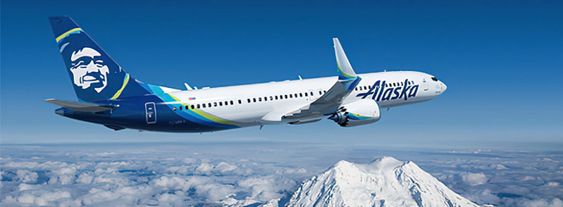SEATTLE, WA, 2022-Aug-12 — /Travel PR News/ — Today (August 11, 2022), Alaska Airlines and Deloitte announced an agreement to advance purchase and use of sustainable aviation fuels (SAF) through Alaska’s new corporate SAF program, part of the company’s Ever Green program to advance environmental sustainability. As a participant in the program, Deloitte will reduce the emissions of their business travel with Alaska by approximately 1,050 metric tons of carbon dioxide.
“Forward-thinking companies like Deloitte are leaders in the critical journey to bring sustainable aviation fuels to scale,” said Diana Birkett Rakow, Senior Vice President, Public Affairs and Sustainability with Alaska Airlines. “Alaska Airlines is committed to a goal of net zero by 2040 and SAF is the major lever to decarbonize over the near- and medium-term, but this is a new market, and we can’t get there on our own. The visionary and proactive engagement of partners like Deloitte to engage in using SAF certificates, or credits, to reduce their scope 3 emissions helps to establish the framework and economics for this market.”
Alaska and Deloitte will collaborate on the purchase of SAF certificates which provide an accounting framework to expand the market for SAF and capture the emissions reduction value for corporate purchasers.
“Deloitte is proud to work with Alaska Airlines to help increase the adoption of sustainable aviation fuel,” said Kwasi Mitchell, Chief Purpose Officer at Deloitte. “Reducing aviation emissions is integral to protecting our climate and creating a more sustainable future.”
SAF is currently available in volumes amounting to less than one percent of total fuel use but is a safe, certified fuel that meets all jet fuel standards and can reduce carbon emissions by as much as 80% on a lifecycle basis. Through their corporate SAF program, Alaska intends to address some of the key barriers to scaling SAF production such as feedstock accessibility, facilities, transportation and storage, pricing, engine infrastructure and demand from operations and customers.
Last year, Alaska announced its commitment and five-part path to reduce the company’s carbon emissions to net-zero by 2040, including SAF as the most significant opportunity to reduce carbon emissions over the next few decades. Additionally, Alaska set 2025 goals to improve its impact relative to carbon, waste, and water.
For further information:
Media Relations
(206) 304-0008
newsroom@alaskaair.com
SOURCE: Alaska Airlines
###

